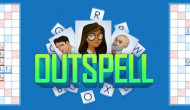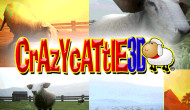LA Times Crossword
About LA Times Crossword
The LA Times Crossword is a daily word puzzle that is published in The LA Times, one of the most popular newspapers in the world. It first appeared in print on September 29, 1930, after a request from Arthur Szekely, who was the editor of The LA Times. The LA Times Crossword consists of six clues and is usually distributed within the pages of The LA Times as an advertisement. However, it can also be found as an actual puzzle on other websites or apps such as iCrossing and Word Lens. While the name may suggest that it is only for Los Angeles residents, anyone with access to a computer and the Internet can submit answers to the puzzle at any time. However, only those with a paid subscription are able to submit their own answers, and can also earn points for each correct answer submitted. The average person spends approximately 8 minutes per day trying to solve the crossword puzzle.
Every day millions of people love and play LA Times Crossword, in addition to challenging themselves, they also provide clues to other players. There are people who use their gameplay as inspiration to create videos to encourage others, you can refer to the videos below.
The word puzzles, especially the crossword are very attractive to the elderly, you can see that the old man is quite excited to complete the game and chat and discover the clues.
History of crossword game
One of the great things about LA Times Crossword puzzles is how challenging they can be. No matter how much you practice and study, there’s always going to be that one word or phrase that trips you up. In this article, we’ll look at some of the most difficult crossword clues ever to help you become a better solver. But before we do, let’s take a quick look at why these clues are so challenging. Crosswords have certain qualities that make them especially difficult. For example, many of them feature a lot of words in small spaces—the classic “clue in a sentence” problem. They also tend to be pretty open-ended—they don’t come with grids or constraints that restrict how many letters or words you need to use. This means it can be hard to find good solutions even if the clues aren’t too difficult. Finally, most puzzles are based on the principle of clue reading, which is more mental than physical and involves recognizing patterns rather than recalling details. Crosswords are no exception; they just happen to have more words and letters than most other puzzles! Let's take a look at some of the most challenging clues you'll ever encounter as well as tips for improving your solving skills.
The most difficult crossword clues of all time
Crossword puzzles have a rich history, and many of the crosswords we encounter today have been around for decades or even centuries. It’s inevitable that there will be some clues that are more challenging than others. Here are some of the most difficult crosswords ever to avoid becoming a crossword master. The Oxford Book of Crosswords, edited by Martin Redfern and published in 1968, contains the following clue: “A 5-letter word that is a derivative of a scientific word ending in -ic.” Although this clue is relatively easy, there are several reasons it’s still a tough clue. Firstly, very few words end in “ic”—just “icat,” “iconic,” and a couple of others. It’s also a pretty unusual word, which makes it harder to recognize as a crossword clue. Finally, it’s a five-letter clue in a six-letter grid. These three factors combine to make this one of the most difficult crossword clues of all time. Another clue from the Oxford Book of Crosswords is: “A small island in the South Atlantic Ocean, near the coast of Chile.” You might think this clue is fairly straightforward—but think again! The “near the coast of Chile” part actually makes this clue even harder. While most people know that Chile is a South American country, it’s much less known that there is a small island off the Chilean coast. It’s also a six-letter clue in a seven-letter grid, which makes it especially challenging.
Difficulty from double entendre clues
Clues that have double meanings are always going to be a challenge—and crosswords are full of them. In the following clue, the name of the singer, Jim Morrison, gives the answer to the clue: “Rock musician who was linked with the Doors.” Although it’s not that hard to figure out the answer to this clue, it can be tricky because it’s a double meaning. If you’re not careful, you might misread the clue and think the answer is “The Doors”! Other clues that use double entendres include: To help you avoid reading double entendres like a fool, here are some tips that can help you through this section of the puzzle. - Make sure the answer to the clue is really obvious. If the answer you’re thinking of is nowhere near the clue, then you’re probably reading a clue. - Read the clue twice so that you’re sure you’ve got the answer right. It’s easy to miss something when you’re trying to read quickly. - If you’re still unsure, ask a friend if they can help you out. And if you do happen to read the wrong answer, apologies are accepted.
Words that are typically more difficult for adults
Sometimes the words in a crossword are particularly difficult for adults. For example, the following clue uses the word “scoundrel”: “A rogue who tries to get something by lying.” While most people know what this word means, there are definitely a lot of older people who don’t know this word. There are also a lot of words that are harder to spell and pronounce than you might think. In the following clue, the word “dulcet” is associated with a musical instrument, but it’s not a word you’d normally associate with crosswords. Another clue that’s particularly difficult for adults is: “A type of flower with a sweet smell.” While this clue is relatively straightforward, there are a lot of words with this spelling that are less common. For example, “perfume” and “scent” are two words that end in “t” that you may not have thought of.
Difficulty from wordplay clues
The following clue is particularly tricky because it uses a wordplay concept: “A British fish with scales whose scientific name includes the letters NH2.” Most people would assume that this word is associated with nitrous oxide—a gas used in some medical procedures. But actually, the definition here is “a British fish with scales whose scientific name includes the letters NH2.” This word is actually a group of bacteria that is found in water and soil. Another wordplay clue that’s particularly hard for most people is: “An American singer who has won an Academy Award.” While most people know who this singer is, the crossword definition is actually pretty strange. It’s actually the name of a type of tree!
Conclusion
Crosswords or LA Times Crossword are notoriously difficult, but they also have a rich history and lots of unsolved puzzles to keep solvers coming back for more. Even if you can’t solve a crossword on your own, there are lots of resources online to help you solve them. With a little practice, you can master the art of clue reading and even enjoy a challenging puzzle every now and then.
How to play LA Times Crossword
If you’re interested in trying out a crossword puzzle, here are some tips:
Pay attention to the clues to figure out what each word means before looking up the answer.
Make sure you have all the letters of the alphabet written down before starting so that you don’t miss any words.
Try not to make too big of a deal out of finishing a puzzle early or missing a clue - it’s okay if you get stuck on something once in a while!
















